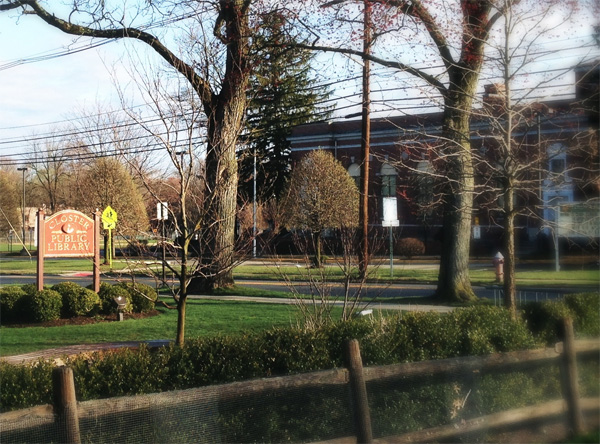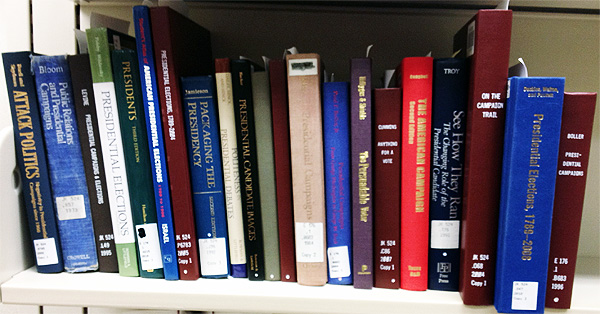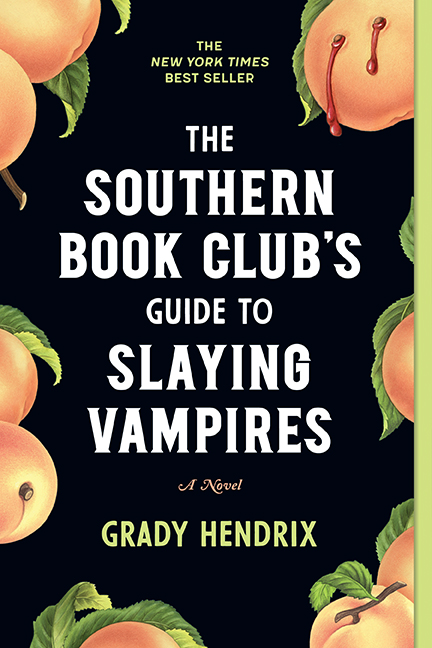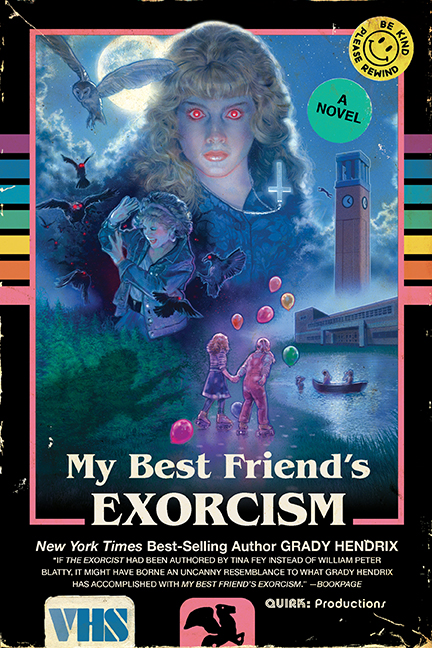Our Blog
National Library Week: The Library Across the Street
Posted by Joseph D'Agnese
Thomas Craughwell Appearing @ the Whittemore Library on September 26th
Image via Historic Buildings of CT
On Wednesday, September 26th the Whittemore Library in Naugatuck, Connecticut is having a book talk and signing by Quirk author Thomas Craughwell. He’ll be there chatting about his latest book, Thomas Jefferson’s Creme Brulee.
This isn’t the first time Tom stopped by the library. Last time he talked about his book Stealing Lincoln’s Body. If you’re in the area, stop by! You can learn more about the library over on its official website and/or Facebook page.
Posted by Eric Smith
A Q&A With Thomas J. Craughwell, Author of Thomas Jefferson’s Creme Brulee
We sat down with Thomas J. Craughwell, the author of Stealing Lincoln’s Body, Saints Behaving Badly, and Quirk's This Saint Will Change Your Life.
In the quick Q&A, he talks about his latest book with us, Thomas Jefferson's Creme Brulee. Read on!
Q. What first gave you the idea to tell this story?
A. As the titles of a couple of my other books suggest—Stealing Lincoln’s Body, Saints Behaving Badly—I’m drawn to off-beat stories. Typically I come upon these stories by chance. That was the case with this book. I knew Jefferson had been in France for five years, and I knew that he was food-and-wine hound. In spring 2011 I was reading a book about Jefferson when I came upon a reference to Jefferson having one of his slaves trained in the art of French cuisine. I did a little hunting around in libraries and found there was enough material for a book.
Q. What made Thomas Jefferson’s eating habits so different from his colonial contemporaries?
A. In the 18th century, Americans and their cousins back in England were heavy meat-eaters. Jefferson preferred vegetables, with a little meat as a side dish or a condiment—that made him unusual. Furthermore, he was an adventurous diner—Jefferson was growing and eating tomatoes when most Americans still believed the fruit to be poisonous. And while most Americans considered simple food prepared in an uncomplicated manner a sign of republican virtue, Jefferson had a deep interest in sophisticated cooking techniques and in dinners that brought a succession of interesting flavors to the table. Patrick Henry, one of Jefferson’s severest critics, denounced him as a man who had “abjured his native victuals!”
Q. The book presents accounts of Jefferson’s scientific approach to gardening, but also his adventurous approach to eating. What do you think made Jefferson so focused on food? Would you say he thought of it as a science or an art?
A. Fundamentally, Jefferson was a farmer. That’s how he made his living. Granted, Monticello was not a typical farmhouse, and Jefferson not a typical farmer. Nonetheless…. He had a scientific mind, so he was always on the look-out for more efficient ways to raise crops, to increase harvests. He experimented with hundreds of varieties of fruit and vegetables to find the ones that were pest resistant, that flourished in the Virginia climate, and also tasted great. But in addition to having a scientist’s mind, Jefferson’s had a gourmet’s palate. The food he grew was brought to his table, so he wanted the best.
Q. The book shows a Thomas Jefferson enamored with French culture and quite disappointed to leave his home there. Was cuisine a way for Jefferson to bring a bit of France home with him to the U.S.?
A. Absolutely. But he wasn’t selfish about it—what he learned and acquired in France he wanted to share with his fellow Americans. He hoped to see Arborio rice and olive groves flourishing in South Carolina, and he thought he could produce America’s first grand cru wines at Monticello. Alas, in Jefferson’s lifetime, none of those grand ideas panned out.
Q. There is little written record of James Hemings’ life. How did you begin to piece together his story with such limited source material?
A. I wish we knew much more about James Hemings. That said, we know more about him than we do about most slaves in the 18th-century America. James and his brothers and sisters had been fathered by Jefferson’s father-in-law. So the members of this slave family were Thomas Jefferson’s sister- and brothers-in-law. They were the most privileged slave family at Monticello, and they appear often in Jefferson’s household records as well as his personal correspondence. Monticello’s encyclopedic website has a lot of information about James Hemings and his family. But the absolutely indispensable resource is Annette Gordon-Reed’s book, The Hemingses of Monticello.
Q. What lasting impact do you think Thomas Jefferson and James Hemings had on the American culinary landscape?
A. I’ll bet that right now there is a bottle of olive oil in your cupboard and some grated or perhaps a wedge of Parmesan cheese in your fridge. I’ll bet you sip champagne at major celebrations, and order crème brulee for dessert when you dine out. And I’ll bet that your kids love mac and cheese, and that you and everyone you know loves French fries. Jefferson and Hemings introduced all this good stuff to America.
Q. How are Jefferson’s ideas about food similar to the foodie revolution happening today?
A. Jefferson ate what was fresh and in season. He liked a succession of courses at his dinners—even when he dined alone—but he did not gorge himself. You could say that Jefferson was an early advocate of portion control. And he ate more vegetables and fruits than meat or carbohydrates.
Q. If Thomas Jefferson were a celebrity chef, which one would he be?
A. No doubt in my mind, Jefferson would be Iron Chef Masaharu Morimoto. Like Morimoto, Jefferson was a perfectionist. The food had to fresh and in season; it had to taste delicious; and the plating (to use a contemporary foodie term) had to be visually appealing, even stunning if possible. James Hemings mastered all those components, which explains why Jefferson found it so hard to let James go.
Posted by Eric Smith
Books We Used to Research Presidential Campaign Posters
The Library of Congress has 34.5 million books, but the writers in the Publishing Office only used a select few sources from the Library's 838 miles of bookshelves.
In spite of the size of our book collection, the books we used from the Library's collections for the entries featured in Presidential Campaign Posters only occupied one small shelf in our conference room. Yet these books and the facts held within their pages helped all of our writers craft captions that were both fun and factual. Most importantly, the books helped us tell the story behind the posters and the election it commemorates.
Posted by W. Ralph Eubanks
Five Fabulous Museums Dedicated To Books
Who doesn’t love a good museum? In Philadelphia, where Quirk is located, we have a ton of ’em. Rocky even ran up the steps of one. We’re also proud to be the home of the Rosenbach Museum and Library, an incredible place full of rare texts. And that’s not the only museum that’s all books all the time. Here are some more.
Rosenbach Museum (Philadelphia, PA): The Rosenbach Museum and Library was founded in 1954 and is home to the collections of Philip Rosenbach and his younger brother A. S. W. Rosenbach. The museum currently boasts an exhibit on the illustrations of Maurice Sendak, offering a glimpse at three picture books by the Wild Things artist. Beginning May 30th, the museum will display an exhibit titled “Who Owns Ulysses? Joyce and Copyright.” If you can’t make it out to Philadelphia, the Rosenbach’s website alone is worth a visit. Past exhibits on Abe Lincoln, the Civil War, and the history of neckwear are archived and can be explored virtually.
Folger Shakespeare Library (Washington, DC): Founded in 1932, the Folger Shakespeare Library is a world-class research center and prides itself in being the premiere center for Shakespeare studies outside of England. The library is also home to the Folger Theatre, producing three plays a year.
An exhibit titled “Shakespeare’s Sisters: Voices of English and European Women Writers 1500-1700” is currently on display as part of the museum’s celebration of women writers. Visitors can also view one of Shakespeare’s First Folios, which is permanently on display. The Folger owns 82 copies of the First Folio, approximately one-third of those believed to still be in existence.
Posted by Danielle Mohlman
The Month of Two Bens
One flew kites. The other had a ball with leeches.
Everyone knows Ben Franklin. Americans celebrate his 306th birthday on Jan. 17th. Another Ben—Dr. Benjamin Rush—is lesser known but nevertheless played a pivotal role in American history. His 267th birthday is Jan. 4th.
Quirk’s home city of Philadelphia is gearing up for two celebrations this month that pay tribute to the two men.
Posted by Joseph D'Agnese







